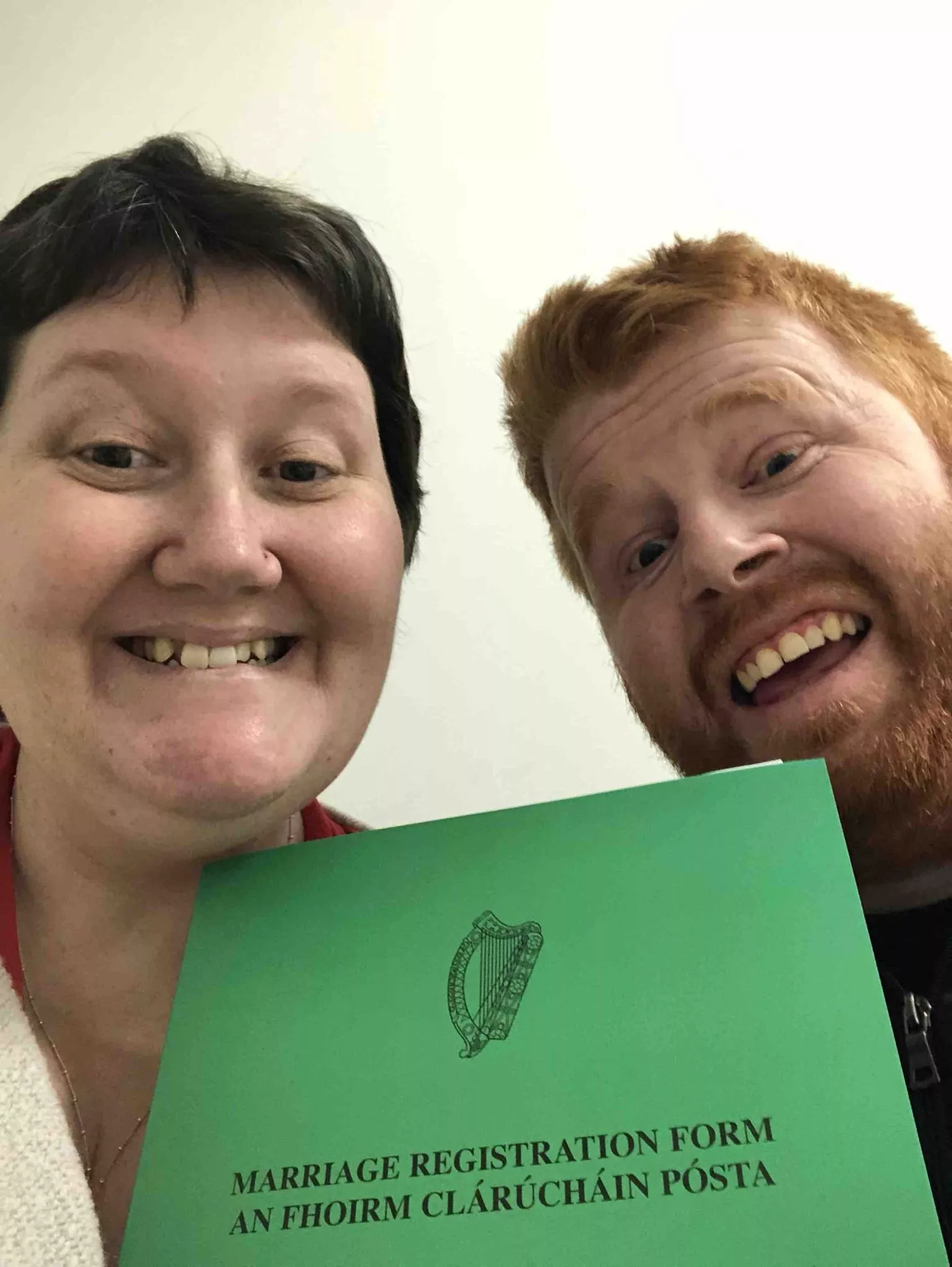Mother-of-two Tina Potts has urged women to get checked after she was diagnosed with terminal ovarian cancer and doctors told her she had just a 30% chance of surviving to Christmas.
"I think I knew that, though. But it's ok. Because I have memory boxes and photos," said Tina to Virgin Media News as she struggled to hold back tears.
Tina, who is 40, and partner Johnny Harris have been forced to bring their wedding forward as result of her diagnosis.
"We always put it off. 'We'll do it next year, we'll next do it next year,' but... there is no next year."
A brave mum who is terminally ill with ovarian cancer has made an emotional appeal for women to make themselves aware of the symptoms
Tina Potts – who has been given just months to live - is getting married tomorrow after bringing the ceremony forward. @GerLynaghTV reports: pic.twitter.com/z6Fh25tg6V— Virgin Media News (@VirginMediaNews) March 21, 2019
Tina's cancer was diagnosed at a late stage due to her unusual symptoms which included bloating, fatigue, bowel changes, and a build up of fluid in her abdomen.
"If you've got concerns, if you have worries, if any of the symptoms sound familiar, get a pelvic exam, have an ultrasound done and get a CA125 test done. Just for your piece of mind.
"And even if your doctor says, look, you're being a bit dramatic here, I think you have a cold, that doesn't matter.
"Fight for it now. Do it now. No matter what age you are. Do it now because if you don't, and you just trust what they say, and assume that they know best... you can't go back.
"All those symptoms... if we just had of known then, what we know now, we wouldn't be here. I wouldn't have to be doing up my own will, or sorting out a funeral."
Tina and Johnny are due to be getting married tomorrow on Daffodil day, a day dedicated to raising awareness of cancer and its many symptoms.

Tina with fiancé Johnny Harris.
Some, but not all symptoms of ovarian cancer
Bloated feeling.
Persistent swollen abdomen.
Pain or dragging sensation in your lower abdomen or side.
Vague indigestion or nausea.
Poor appetite and feeling full quickly.
Changes in your bowel or bladder habits; for example, constipation or needing to pass water urgently.
Abnormal vaginal discharge or bleeding (rare).
See www.cancer.ie for more details.






